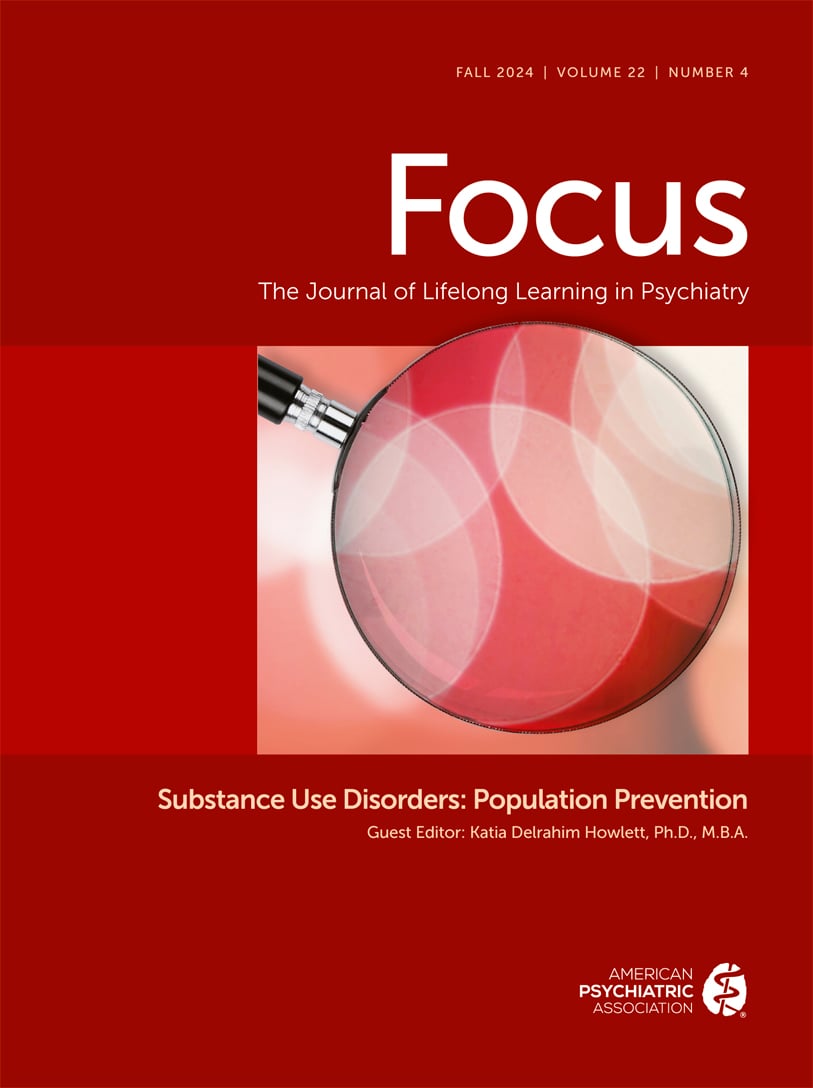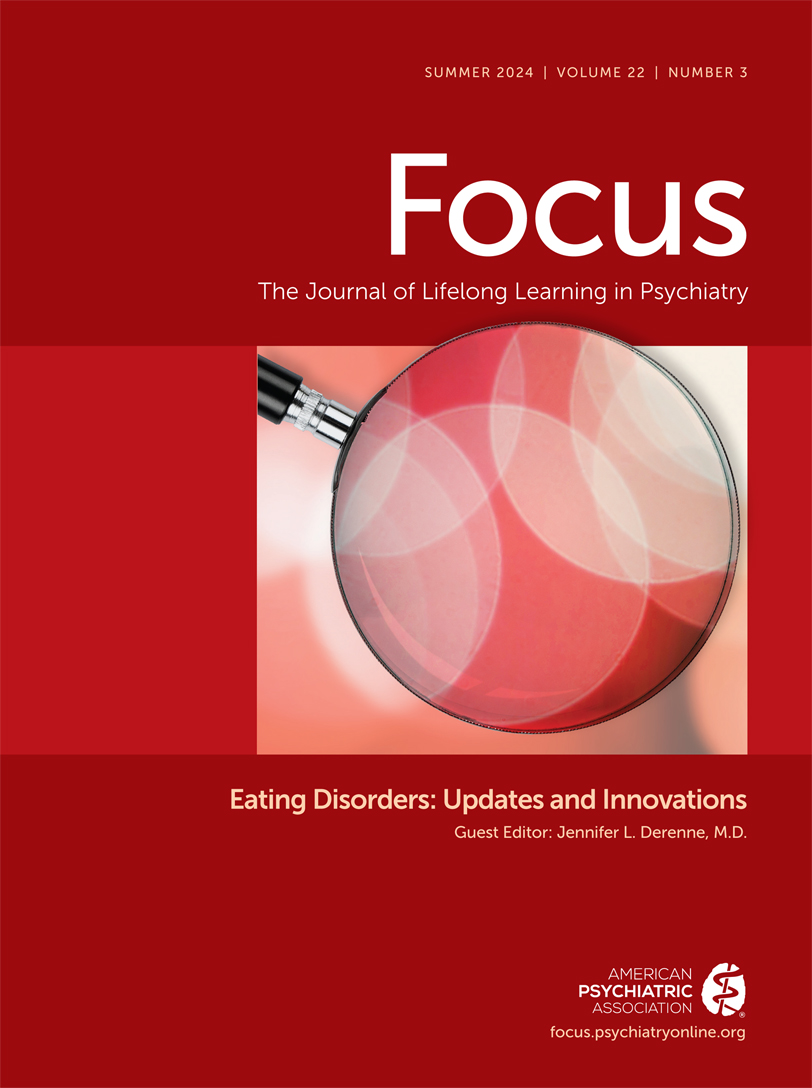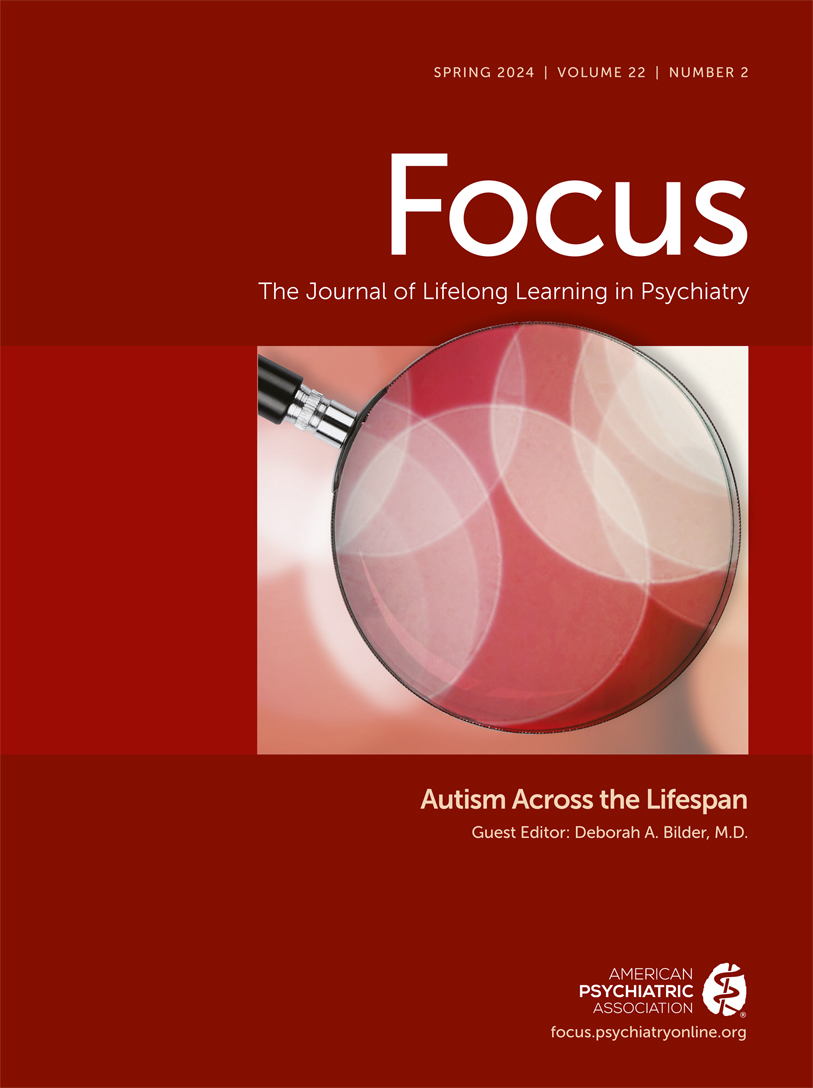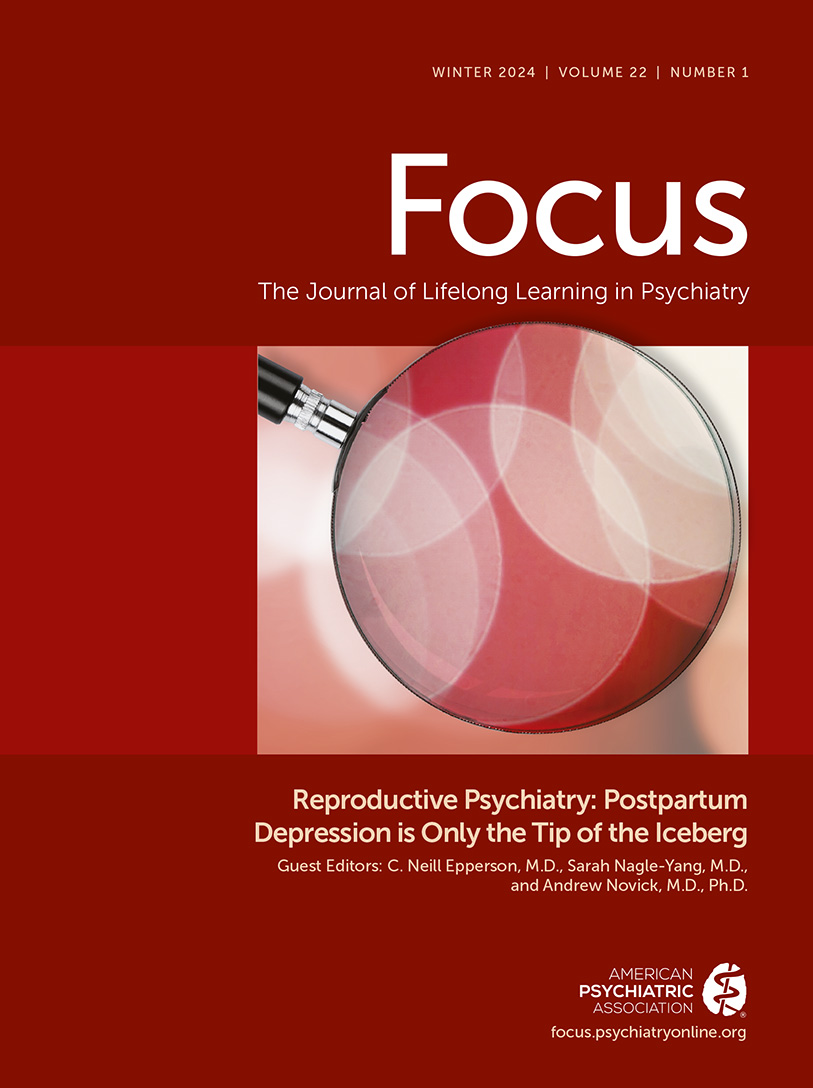Focus
- Volume 10
- Number 1
- January 2012
FROM THE GUEST EDITOR
Publication date: 01 January 2012
Pages3–14Psychiatric illness can occur during pregnancy and the postpartum period. Not only will the mother feel distressed but also these illnesses can cause direct and indirect harm to the baby as well as create long-term negative consequences
https://doi.org/10.1176/appi.focus.10.1.3Publication date: 01 January 2012
Pages15–21The postpartum period is a time of increased vulnerability for depression in women. Women with a prior psychiatric history are at increased risk for postpartum depression. Other risk factors include psychological, social, and biological contributions.
https://doi.org/10.1176/appi.focus.10.1.15Publication date: 01 January 2012
Pages22–27The menopausal transition is often marked by physical symptoms (e.g., vasomotor and sexual) and is sometimes accompanied by emotional changes that follow the decline in ovarian functioning. Although the absolute majority of women experience a smooth ...
https://doi.org/10.1176/appi.focus.10.1.22REVIEW
INFLUENTIAL PUBLICATIONS
Publication date: 01 January 2012
Pages45–47This section contains a compilation of recent publications that have shaped the thinking in the field as well as classic works that remain important to the subject reviewed in this issue. This bibliography has been compiled by experts in the field and ...
https://doi.org/10.1176/appi.focus.10.1.45Publication date: 01 January 2012
Pages51–66Mood disorders disproportionately affect women across the lifespan. Mood disorders in pregnancy and the postpartum period are common and have profound implications for women and their children. These include obstetric and neonatal complications, impaired ...
https://doi.org/10.1176/appi.focus.10.1.51Publication date: 01 January 2012
Pages67–77Objective: Selective serotonin reuptake inhibitor (SSRI) use during pregnancy incurs a low absolute risk for major malformations; however, other adverse outcomes have been reported. Major depression also affects reproductive outcomes. This study examined ...
https://doi.org/10.1176/appi.focus.10.1.67Publication date: 01 January 2012
Pages78–89Objective: To address the maternal and neonatal risks of both depression and antidepressant exposure and develop algorithms for periconceptional and antenatal management. Method: Representatives from the American Psychiatric Association, the American ...
https://doi.org/10.1176/appi.focus.10.1.78Publication date: 01 January 2012
Pages90–101Five percent of menstruating women have severe premenstrual symptoms and impairment of functioning defined as premenstrual dysphoric disorder (PMDD). Clinically significant premenstrual symptoms occur in at least an additional 20% of menstruating women. ...
https://doi.org/10.1176/appi.focus.10.1.90Publication date: 01 January 2012
Pages102–110Objective: The National Institutes of Health and The North American Menopause Society sponsored a symposium to understand the impact of the menopausal transition on mood symptoms and cognitive disorders and to identify research priorities for further ...
https://doi.org/10.1176/appi.focus.10.1.102Past Issues
View Issues Archive
Vol. 22 | No. 4

Vol. 22 | No. 3

Vol. 22 | No. 2
